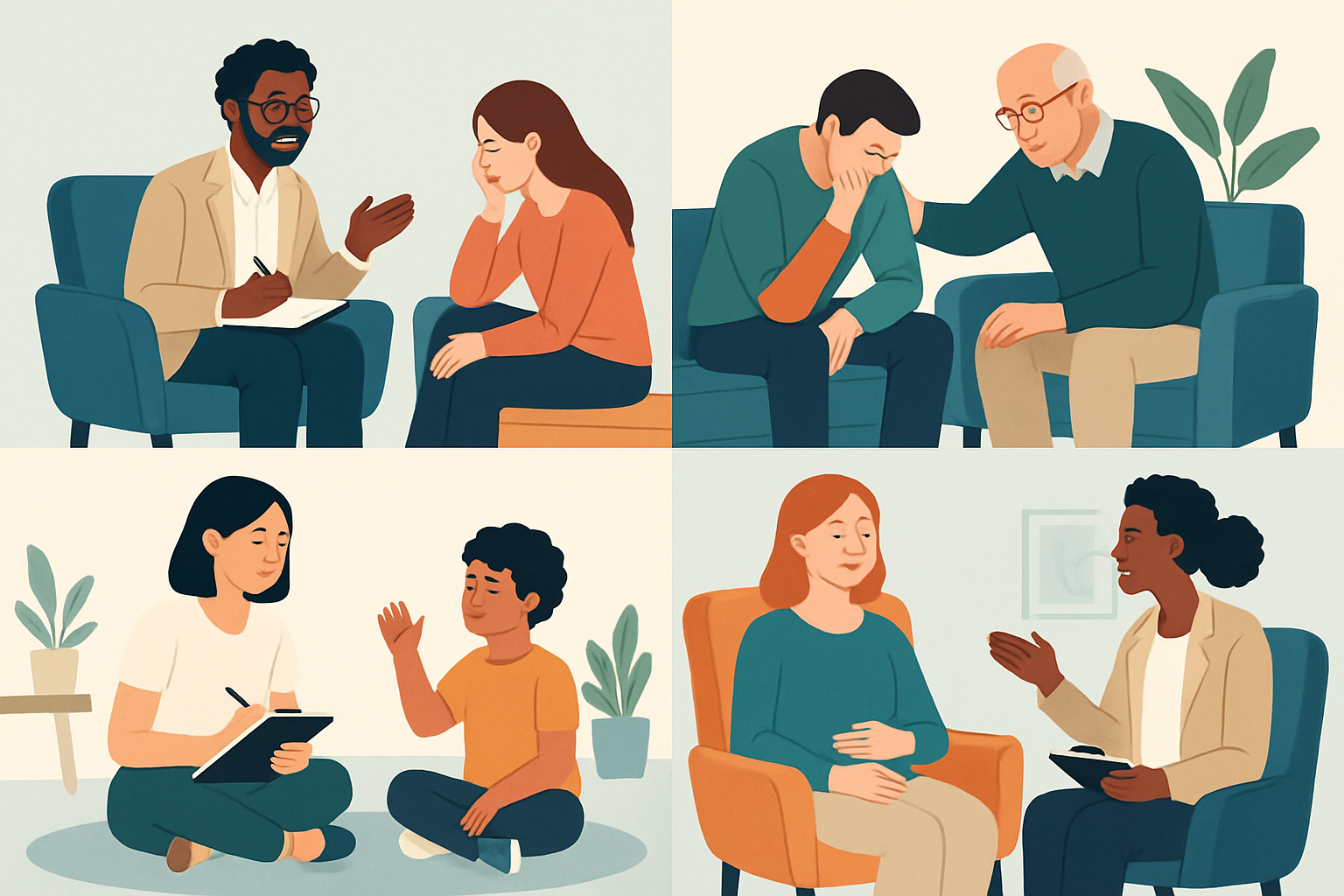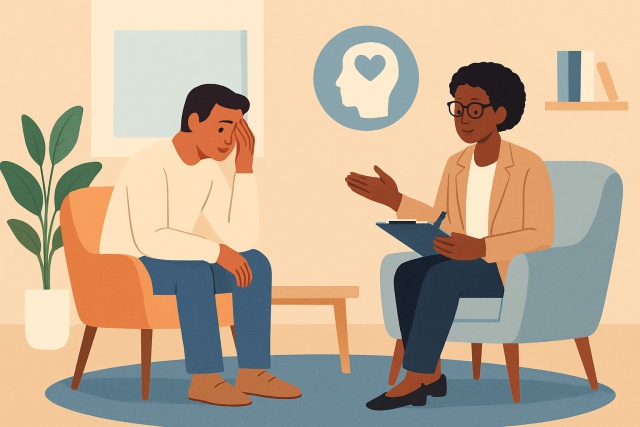
Understanding Bottom Up Therapy Approaches
Discover how bottom up therapy focuses on the body and nervous system to unlock lasting emotional he...
Finding the right therapist often turns out to be a vital step in your mental health journey, offering support that genuinely feels tailored to you.
Many people find themselves reaching out to therapy when life feels like it’s got them in a tight spot—overwhelmed or anxious or down in the dumps or stuck in less-than-healthy routines. In those sessions you’ll often chat about your thoughts and feelings and behaviors within a supportive space.
Knowing the different types of therapists can really take the guesswork out of finding the right fit for your needs. Psychologists usually hold a doctoral degree and are skilled at both psychological testing and therapy—kind of like the Swiss army knife of mental health. Psychiatrists are medical doctors who can prescribe medication and provide therapy too, so they cover both the medical and emotional parts. Licensed professional counselors and clinical social workers often zoom in on talk therapy and counseling, usually focusing on specific groups or particular issues—they’re like the specialists in the crowd. Marriage and family therapists zero in on relationship and family dynamics, helping untangle those sometimes knotty connections.
| Therapist Type | Credentials/Licensing | Typical Approaches | Common Issues Treated | Session Formats |
|---|---|---|---|---|
| Psychologist | PhD/PsyD, licensed psychologist | Cognitive behavioral therapy, psychodynamic methods, assessments | Anxiety, depression, trauma | Individual, group, testing |
| Psychiatrist | MD, licensed psychiatrist | Medication management alongside therapy | Severe mental illnesses, bipolar disorder, schizophrenia | Individual |
| Licensed Professional Counselor (LPC) | Master's degree, licensed counselor | Talk therapy, cognitive behavioral therapy, solution-focused approaches | Stress, relationship challenges, grief | Individual, group |
| Clinical Social Worker | Master's in social work, LCSW | Talk therapy and case management | Family issues, trauma, addiction | Individual, family |
| Marriage and Family Therapist (MFT) | Master's degree, licensed MFT | Systemic therapy with a focus on relationships | Couples counseling, family conflicts | Individual, couples, families |
When it comes to therapy, there is a whole toolbox of approaches, each tailored to tackle specific challenges that life throws at us. Think of these modalities as different routes up the same mountain—some might be rocky and direct, others winding and gentle, but all aiming for clearer skies.
Therapy comes in many shapes and sizes, each tailored to fit different needs and goals. You’ve probably heard of Cognitive Behavioral Therapy (CBT), which zeroes in on shaking up those thought patterns that might be holding you back. Psychodynamic therapy takes a deeper dive into the unconscious mind—kind of like detective work on your inner world. Humanistic approaches put a big spotlight on personal growth and finding your own path. And let’s not forget Dialectical Behavior Therapy (DBT), a helpful tool for keeping emotional ups and downs in check.

Finding the right therapist often comes down to considering your unique challenges and what you hope to get out of therapy. It also depends on how you like to communicate and practical details like budget and schedule.
Getting ready for your first therapy session usually means taking a moment to reflect on your goals and personal history and any questions you might want to ask the therapist. After a handful of sessions, pause and really think about how comfortable and understood you feel. That way, you can figure out if this therapist is the right fit for your healing journey.
If you often feel misunderstood or uneasy or notice little progress after a few sessions, it might be time to consider switching therapists. Changing providers is not a mark of failure but an important step toward finding the kind of support that truly suits you.
Finding the right therapist is a pretty big deal on your healing journey. Taking the time to choose carefully means you’re really investing in your mental health and overall wellbeing—kind of like giving yourself the care you truly deserve.

Discover how bottom up therapy focuses on the body and nervous system to unlock lasting emotional he...

Discover a comprehensive guide to therapy for anxious avoidant attachment. Learn the stages, challen...

Confused about choosing a therapist or counselor? This article breaks down their key differences acr...

Discover the vital concept of countertransference in therapy, how it shapes therapist-client dynamic...